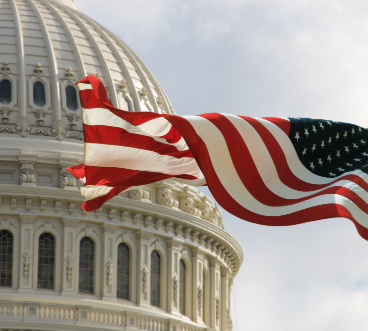Corruption has become a key foreign policy tool of U.S. adversaries. Russia, China, Venezuela, Iran, and other authoritarian regimes deploy it to undermine democracy, human rights, and the rule of law around the world. They use it to destabilize countries where the rule of law is weak and gain access to elite circles in countries where the rule of law is strong. Such regimes also create an uneven playing field favoring autocrat-owned concerns by sidelining companies and businesspeople that comply with the rule of law.
Several Helsinki Commission-supported anti-kleptocracy initiatives confront this threat by resourcing and streamlining U.S. efforts to build the rule of law abroad (H.R. 3843/S. 3026), exposing the names and misdeeds of kleptocrats around the world (H.R. 3441), ending impunity for foreign corrupt officials (H.R. 4140), and shining a light on ill-gotten gains hidden in the United States (H.R. 4361). Taken together, the passage of these bills would represent a decisive first step toward a reordering of U.S. foreign policy that prioritizes the fight against global corruption and the promotion of the rule of law around the world.
H.R. 3843/S. 3026, the Countering Russian and Other Overseas Kleptocracy (CROOK) Act, the most comprehensive of the four bills, outline and would mandate a U.S. foreign policy strategy that focuses on global corruption as a key national security threat. The key operative mechanism of the bill is the establishment of an Anti-Corruption Act Fund, which is financed through a surcharge on certain high-value FCPA cases. The bill also would establish an interagency working group on anti-corruption and anti-corruption points of contact at U.S. embassies to coordinate use of the Fund and U.S. efforts to promote the rule of law abroad more generally.
H.R. 3441, the Kleptocrat Exposure Act, and H.R. 4140, the Foreign Extortion Prevention Act, would each provide the Executive Branch authorities to push kleptocrats out of the global economy. H.R. 3441 would enable the Secretary of State to reveal publicly the identity of any individual whose visa has been banned for reason of human rights abuse or corruption, thereby providing invaluable information to foreign states, the private sector, journalists, civil society, and any other interested party. H.R. 4140 would enable the Department of Justice to build cases against foreign corrupt officials who extort U.S. persons abroad, a long overdue tool to level the playing field in international business between U.S. companies, which are barred from exporting corruption, and autocratic ones, which are encouraged to do so.
Finally, H.R. 4361, the Justice for Victims of Kleptocracy Act, would create a formal mechanism to demonstrate U.S. solidarity with the victims of kleptocracy. It mandates that the Department of Justice create a website listing by country the total funds recovered by U.S. law enforcement that were stolen and hidden in the United States. It expresses further U.S. intent to return those funds to the benefit of the people from whom they were stolen at such a time as the United States can be sure that the money will not be stolen again. This simple transparency mechanism would resonate with journalists, civil society, and citizens of kleptocracies around the world and help them to hold their leaders to account.







